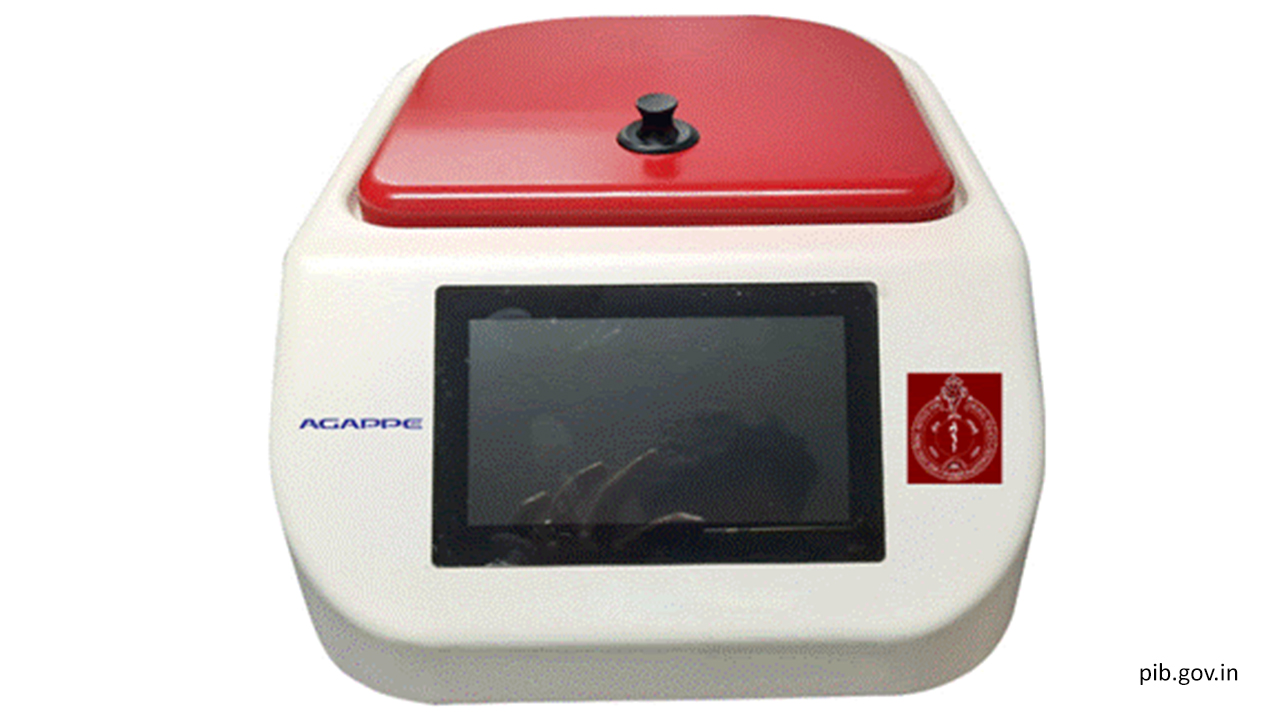Chitra Magna, an innovative RNA extraction kit, has been developed by Sree Chitra Tirunal Institute for Medical Sciences and Technology (SCTIMST), an Institution of National Importance under the Department of Science and Technology, Govt. of India, as an innovative technology for isolating RNA from swabs for COVID 19 tests.
SARS-COV-2, the causative virus of COVID-19 pandemic, is an RNA virus-- a long single-stranded polymeric substance present in all living cells that carries the genetic information of the organism necessary for life. One of the critical steps in detecting this virus is by confirming the presence of the RNA of the virus in the sample taken from the throat or nose. The sample collected is transported under specified conditions in a viral transport medium to the testing laboratory.
The protocol for the kit uses magnetic nanoparticles to capture and concentrate the RNA from the patient sample. This is of significant advantage because even if some viral RNA disintegrates during storage and transportation of the patient samples, all of it is captured by the magnetic bead-based extraction technology. The magnetic nanoparticle beads bind to the viral RNA and, when exposed to a magnetic field, give a highly purified and concentrated level of RNA. As the yield of PCR or LAMP test is dependent on getting an adequate quantity of viral RNA, this innovation enhances the chances of identifying positive cases. The Institute has filed for a patent for this technology, which is simpler than in imported kits.
Chitra Magna can be used to extract high purity RNA from patient samples not only for LAMP testing but also for the RT-PCR test. The first step of isolating high quality and high concentration of RNA without degradation is critical to the outcome of the PCR or LAMP test in which RNA is converted to DNA. Barring a few Indian manufacturers, the majority of RNA isolation kits are imported, and its non-availability often becomes a severe bottleneck for RT-PCR testing in large numbers across the country.
"An efficient way of capturing and concentrating the RNA from patient samples is the first critical step in the confirmatory tests of the COVID-19 virus. The innovative process of conjugating the RNA with magnetic nanoparticles and increasing their concentration in one place by applying a magnetic field is a breakthrough that allowed the high sensitivity of newly developed RT-LAMP test from SCTIMST. Indeed, multidisciplinary and lateral thinking are the hallmarks of good science, with this example fitting the bill!" said Professor Ashutosh Sharma, Secretary, DST.
The technology of Chitra Magna has been transferred to the Agappe Diagnostics Ltd Ernakulam. The company has already taken the Chitra GeneLAMP-N technology, which uses RT-LAMP for identification of the N gene of SARS-COV-2. It is a potential confirmatory test with accuracy matching RT-PCR in its initial validation at NIV by ICMR. The test kits are now being validated in larger test samples for ICMR approval, followed by a commercial manufacturing license from DCGI. Dr. Anoop Thekkuveettil and his team, who developed Chitra GeneLAMP–N has developed the technology of Chitra Magna. All technology transfers of Sree Chitra are nonexclusive. Sree Chitra is an Institute of national importance under the department of Science and Technology, Govt of India.

 Sree Chitra Tirunal Institute develops magnetic nanoparticle-based RNA extraction kit for PCR and LAMP tests for COVID-19
Sree Chitra Tirunal Institute develops magnetic nanoparticle-based RNA extraction kit for PCR and LAMP tests for COVID-19











.jpeg)

.jpg)


















.jpg)